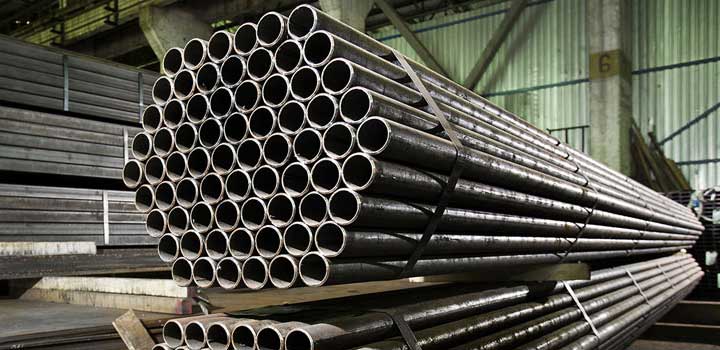Overview of BS 6323 Part 5 Specification St 45 ERW pipes are known for their precise length tolerances, which play a crucial role in various industrial and manufacturing applications. Maintaining tight tolerances ensures that the pipes fit perfectly into systems, reducing the need for adjustments during installation. This precision also minimizes material waste and improves production efficiency. The consistent length helps in achieving better performance and reliability in construction and mechanical systems. Standard Length Tolerances for BS 6323 Grade CFS 5 Tubes BS 6323 Part V ERW tubes typically contain about 0.25% carbon, which significantly enhances their strength and hardness. This makes them suitable for high-pressure environments. The balanced carbon content also ensures good weldability and machinability, allowing for easy fabrication without compromising structural integrity. Chemical Composition of BS 6323 Part 5 The yield strength of 350 MPa ensures that the tube can withstand significant stress before deforming, making it ideal for use in structures under normal operating conditions. This property allows the material to handle varying loads and pressures while maintaining its shape and function over time. The tensile strength of 540 MPa further enhances its durability and resistance to mechanical failure, ensuring long-term performance in demanding environments. Additionally, the material exhibits good ductility, allowing it to be bent, formed, and shaped without cracking. This makes it highly versatile for a wide range of engineering and construction applications. Mechanical Properties of BS 6323-5 EN 1.0408 Equivalent Grade BS 6323 Grade HFS 5 tubes are highly formable, making them ideal for bending, flaring, and shaping processes. Their excellent ductility and bending strength allow them to maintain structural integrity even after being molded into complex shapes. This ease of formability reduces manufacturing costs and improves production efficiency, making them a popular choice in many industries. Diameter Tolerance of St 45 ERW Pipes Material Testing for BS 6323-5 Tubes EN 1.0408 is widely used in automotive and engineering sectors due to its excellent balance of strength, hardness, and machinability. It contains approximately 0.40% carbon, enhancing its mechanical properties. This material is ideal for components like bolts, shafts, and gears that require high strength and wear resistance. Its ability to undergo heat treatment further increases its versatility for different engineering applications. Applications of BS 6323 Part V ERW Tubes Forged Steel Check Valve,Forged Steel Lift Check Valve,Forged Steel Swing Check Valve,Forged Steel Flanged Check Valve RST VALVE GROUP CO.,LTD , https://www.stainlesssteel-valves.com
Table of contents
Grade
BS 6323 Part 5
Thickness
Customizable
Length
6m, 6.4m, 12m
Ends
Plain, Threaded, Beveled
Processing Services
Pipe Type
ERW / CDW
Heat Treatment
Stress Relieved (BK+S)
Internal Diameter Accuracy
H7, H8, H9
Surface Finish
Ra 0.2–0.8 μm
Thread Standards
Understanding St 45 ERW Pipe Length Tolerances
Component Length (mm)
OD 30–100 mm
OD 100–254 mm
10–100
+1.0 / -0
+2.0 / -0
100–600
+2.0 / -0
+3.0 / -0
600–1200
+3.0 / -0
+4.0 / -0
1200–5000
+5.0 / -0
+6.0 / -0
Carbon Content in BS 6323 Part V ERW Tubes
Mechanical Properties of BS 6323-5 Grade
Yield Strength
Tensile Strength
350 MPa
540 MPa
Standard
EN
DIN 23912
EN 1.0408 / St 45
Formability of BS 6323 Grade HFS 5 Tubes
T/D Ratio
Tolerance Limits
≥0.05
±1%
0.05 > T/D ≥ 0.025
±1.5%
< 0.025
±2%
Wide Applications of EN 1.0408 Material
Carbon
0.4%
Silicon
0.35%
Manganese
0.9%
Phosphorus
0.05%
Sulfur
0.05%
Iron
97.8%